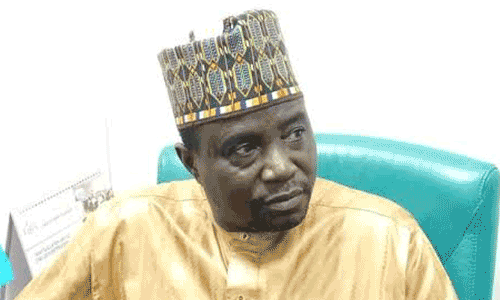A member of the House of Representatives, Hon. Ibrahim Usman Auyo, has alleged that federal lawmakers are required to pay between ₦1 million and ₦3 million before being allowed to present motions, bills, or petitions during plenary sessions.
Ibrahim Usman Auyo, who represents Hadejia, Auyo, and Kafin Hausa Federal Constituency in Jigawa State, made the claim in a video that went viral on Thursday, in which he spoke in Hausa.
The lawmaker was seen in the video reacting to criticism from his constituents.
According to him, the process of getting items listed for consideration in the House is financially driven, contrary to the public perception that debates are guided solely by merit.
Auyo, popularly known as ‘Kamfani,’ denied claims that other lawmakers wrote motions based on their constituents’ needs, but insisted that legislative processes at the National Assembly were financially driven.
He said: “Since I went to the Assembly, it’s not true that someone wrote a motion for their needs or others to be presented before the House. It’s all false. And if at all there is, anybody should come out to challenge me.
“Even the bills and petitions are paid for. You have to pay N3 million, N2 million, or N1 million for it to be read on the floor of the House. After you read the bill, you have to lobby over 360 lawmakers to support that the bill be considered.”
The lawmaker also dismissed accusations that he had neglected youth empowerment in his constituency, insisting that the majority of his projects had directly benefited young people.
“Whoever said the youths were not supported, that person only expressed their personal opinion, as it’s not true. Those who benefited know. You are not God, so you cannot satisfy everybody or be just to all. Of course, not everybody will get or benefit from the distribution. I singlehandedly do the distributions. 80 per cent of the distribution goes to the youths,” Auyo stated.
Speaking on how he handles motions and community requests, Auyo said he had a standard process in place.
He explained: “On bills, I have made it a principle that any community or local government that has any motion should sit down and put it into writing.
“They should take it to my legislative aides for onward delivery to me and await to see whether we will act on it or not. If it is something I can address instantly, we do it, and if it is something I will appeal to be placed for the next year’s appropriation, I will plead that it be done that way.”
This is not the first time lawmakers have been accused of sharp practices.
Recently, a senior National Assembly official, Ifeoma Ofili, accused lawmakers of engaging in entrenched bribery, manipulating public hearing reports, and diverting staff entitlements.
In a viral video, Ofili alleged that legislators routinely collect bribes from ministries and agencies during oversight visits and often bypass procedural checks by hiring external consultants to falsify reports.
She further claimed that allowances for staff training, healthcare, and welfare are collapsed into ambiguous budget lines and siphoned off by lawmakers, leaving both serving and retired staff struggling financially.
Deputy Spokesperson of the House, Philip Agbese, told The Guardian that Auyo’s statement is baseless and deeply irresponsible.
He said the statement by the lawmaker likely stemmed from illiteracy or ignorance and does not reflect the reality of the 10th assembly legislative practices.
He said: “I find these claims baseless and deeply irresponsible. Suggesting that lawmakers must pay fees to present motions, bills, or petitions during plenary sessions is a reckless misrepresentation of the legislative process.
Stay ahead with the latest updates!
Join The Podium Media on WhatsApp for real-time news alerts, breaking stories, and exclusive content delivered straight to your phone. Don’t miss a headline — subscribe now!
Chat with Us on WhatsApp





